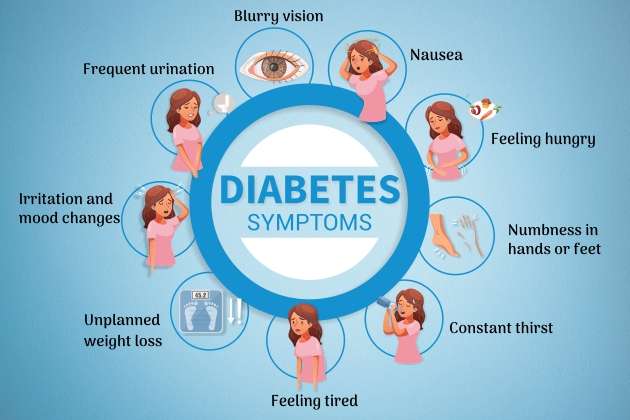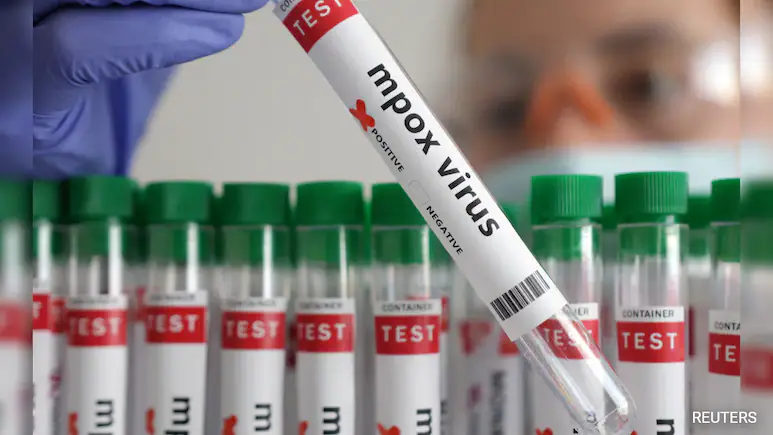Diabetes is a chronic condition that affects how your body uses blood sugar (glucose). There are two main types of diabetes: type 1 and type 2. Both types share some common symptoms, though they may manifest differently. Here are common symptoms of diabetes:
Common Symptoms of Diabetes:
- Frequent Urination (Polyuria): Individuals with diabetes may experience an increased need to urinate, especially at night.
- Excessive Thirst (Polydipsia): Increased urination can lead to dehydration, causing excessive thirst.
- Unexplained Weight Loss: Despite an increased appetite, people with diabetes may lose weight unintentionally.
- Increased Hunger (Polyphagia): Individuals with diabetes may feel hungry even after eating.
- Fatigue: Diabetes can cause fatigue and a general feeling of being unwell.
- Blurred Vision: High blood sugar levels can affect the eyes and lead to temporary blurred vision.
- Slow Healing of Wounds: Diabetes can affect the body’s ability to heal, leading to slow healing of cuts and bruises.
- Frequent Infections: Individuals with diabetes may be more prone to infections, including urinary tract infections, skin infections, and others.
- Tingling or Numbness in Hands and Feet: Diabetes can affect the nerves, leading to peripheral neuropathy, which may cause tingling or numbness in the hands and feet.
- Dry Skin and Itching: Diabetes can cause dry skin and itching, often due to poor blood circulation and nerve damage.
- Yeast Infections: Women with diabetes may experience more frequent yeast infections.
- Increased Irritability: Fluctuations in blood sugar levels can affect mood and lead to irritability.
Type 1 Diabetes-Specific Symptoms:
- Sudden Onset: Type 1 diabetes often develops rapidly, with noticeable symptoms appearing over a short period.
- Extreme Hunger: Individuals with type 1 diabetes may experience extreme hunger.
- Unintentional Weight Loss: Weight loss may be more pronounced in type 1 diabetes.
Type 2 Diabetes-Specific Symptoms:
- Gradual Onset: Type 2 diabetes typically develops more slowly, and symptoms may be less noticeable.
- Acanthosis Nigricans: Dark, velvety patches of skin, especially in the neck and armpit areas, may occur.
It’s important to note that not everyone with diabetes will experience all of these symptoms, and some individuals may not show any symptoms at all. If you suspect you have diabetes or are experiencing any of these symptoms, it’s crucial to consult with a healthcare professional for proper evaluation and diagnosis. Early detection and management of diabetes are key to preventing complications.









